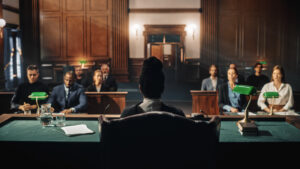
This is so that everyone can exercise their First Amendment rights, which, according to the courts' repeated rulings, include the media's interest in public court proceedings. To learn more about this subject, keep reading. Call the Law Office of Michael L. Fell at (949) 585-9055 to speak with a criminal defense lawyer if you have been detained or accused of committing a crime.
Reasons why trials typically should be open to the public
There are many public policy arguments in favor of keeping legal procedures open. It could be beneficial to promote a fair trial first. It might be more difficult for the prosecution or judge to treat a defendant unfairly or illegally if the public can observe the justice system in action.
The criminal justice system is held responsible by open trials, second. The presence of interested observers may serve to remind the jury, judge, and staff of their genuine duties and the potential gravity of their decisions. Public trials allow the general public in towns where judges are elected to see how the judges are doing in action.
Public trials were frequently an opportunity for possible witnesses to testify in the past, though this is less common today. However, in the past, public trials served as a means of spreading the information before the internet and other media existed. Last but not least, it is believed that a witness is less likely to lie under oath if their evidence is known not only to the court but also to the entire community.
what constitutes a public trial?
A case is not always public just because the media has written about it. A courtroom is still public even if cameras are not permitted there. So what does "public" entail in relation to a trial? The Sixth Amendment mandates that the general public and the press be given the chance to attend the trial and report on what they saw.
This necessitates holding the trial in a public setting and allowing for onlookers. This does not, however, imply that public access to trials is required. The courthouse may be located inside the prison even though it is not widely accessible to the general public, like in the case of a prisoner who assaults a prison officer.
Public notice of the proceedings is also required, however this does not necessarily entail advertising. It simply implies that court notices must be published at least a week before to the hearing in whatever the state views to be its "legal organ."

